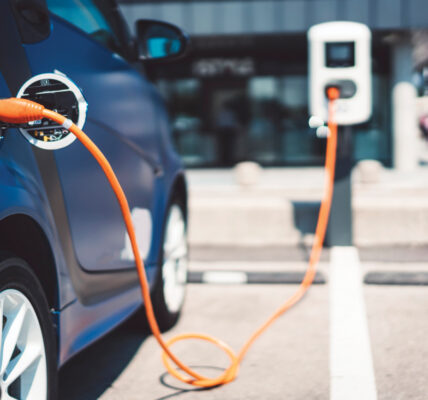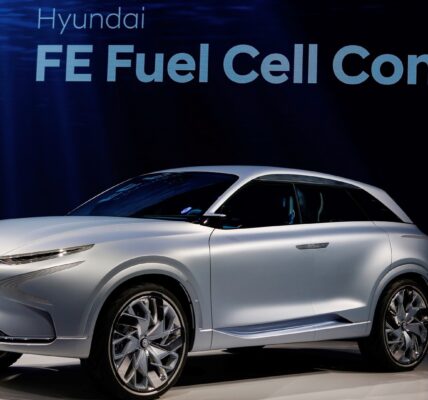Hyundai Motor and MG are among the electric vehicle makers challenging Tata Motors’ dominance in India, a market where Tesla has yet to arrive and Chinese automakers face hurdles to investment.
Hyundai Motor India plans to invest 200 billion rupees ($2.42 billion) over 10 years to develop an electric vehicle supply chain and charging network in the country, the company said May 11.
South Korea-based Hyundai faces an outsize rival in India’s Tata Motors, which held an 85% share of EV sales in its domestic market last year, British research firm LMC Automotive reports.
Hyundai aims to increase EV production at its plant in India’s southern state of Tamil Nadu, and also build a battery factory and charging stations there. A memorandum of understanding with the state government was signed in the presence of Tamil Nadu Chief Minister M.K. Stalin.
Hyundai has been touting its EV lineup in India. Bollywood star Shah Rukh Khan, a Hyundai India brand ambassador, appeared at an international auto expo in New Delhi in January to promote the automaker’s new global flagship EV, the Ioniq 5.
Low-priced gasoline-burning cars still rule India’s auto market, the world’s third largest. Maruti Suzuki is the overall market leader, with 41% of passenger car sales nationwide in the year ended March 2023, the Society of Indian Automobile Manufacturers reports. Hyundai and Tata followed with 15% and 14%, respectively.
Though fewer than 50,000 EVs were sold in India in 2022, accounting for only about 1% of the total passenger car market, rising incomes are expected take that number higher, especially in urban areas.
“There is ample room for growth over the long term,” said Ram Giri of the Mitsui & Co. Global Strategic Studies Institute.
Maruti Suzuki has signaled caution on the growth prospects of India’s electric vehicle market. It is preparing to roll out electric models in fiscal 2024, but sells no EVs in the country at this point.
In contrast, Tata accelerated early into electrics. It released the Tiago hatchback EV last year, starting at 849,000 rupees, or about $10,300, a far lower price than earlier models. More than 10,000 units were reserved on the first day.
The Chinese-owned British auto brand MG Motor appears poised to lead the charge against Tata. Preorders began in May for its new Comet EV, which has stolen a bit of Tata’s thunder with a limited-time starting price of 798,000 rupees.
MG ranked second to Tata in India’s EV market as of 2022, but geopolitical risks hang over its growth prospects. The company is a subsidiary of China’s SAIC Motor, and its new electrics are based on Chinese models. Official approval is required for direct investments from countries that share a land border with India — a barrier pointed mainly at China, which has clashed with its neighbor over their disputed boundary line in the Himalayas.
India’s restrictions on Chinese capital make it difficult for MG to undertake big investments. In May, the company’s Indian subsidiary announced changes to its capital structure that would make the majority of its shareholders carry Indian affiliations in two to four years. Local conglomerates such as Reliance Industries are expected to acquire shares.
China’s Great Wall Motor tried to enter the Indian market by acquiring a General Motors-owned plant, but failed to obtain approval. Chinese EV giant BYD, which rivals Tesla in global sales, has only a weak presence in India.
An entry by Tesla into India also would shake up the EV market. Tesla representatives visited India in May to discuss the possibility of local production with government officials, The Financial Express and other Indian media report. Tesla is expected to respond in three to six months with a plan for creating a local supply chain, according to the reports.
Japanese automakers have been slow to introduce EV models in India, allowing Hyundai and others to take the lead. Nissan Motor will invest $600 million with its French alliance partner Renault to develop new models in India including electrics. Maruti Suzuki parent Suzuki Motor will invest 104.4 billion rupees to produce EVs and batteries in the western state of Gujarat.
India, a net importer of oil that struggles with severe air pollution, has debuted subsidies and other incentives under a push to make EVs account for 30% of passenger car sales by 2030. Some states are moving to provide their own subsidies.








